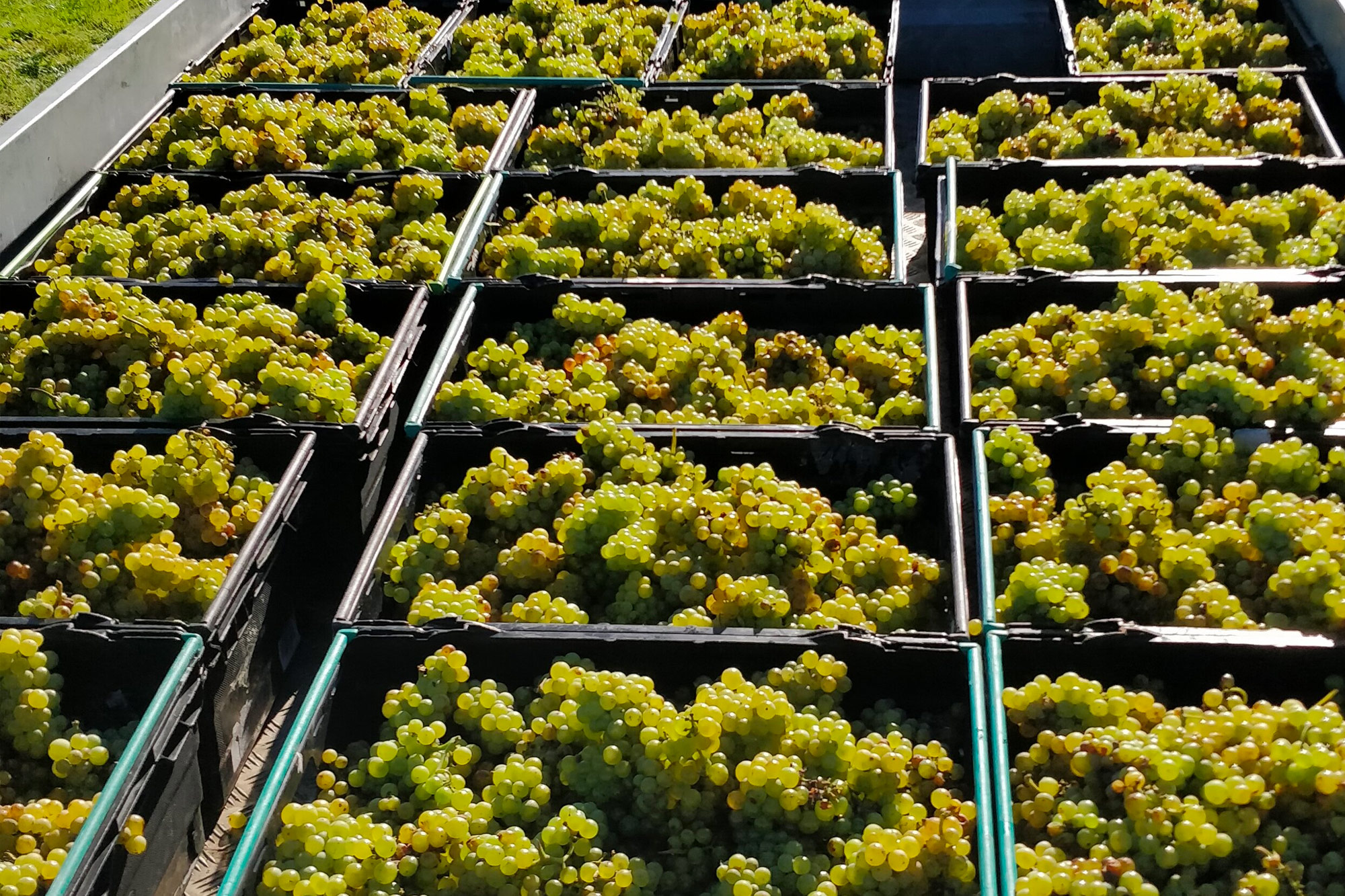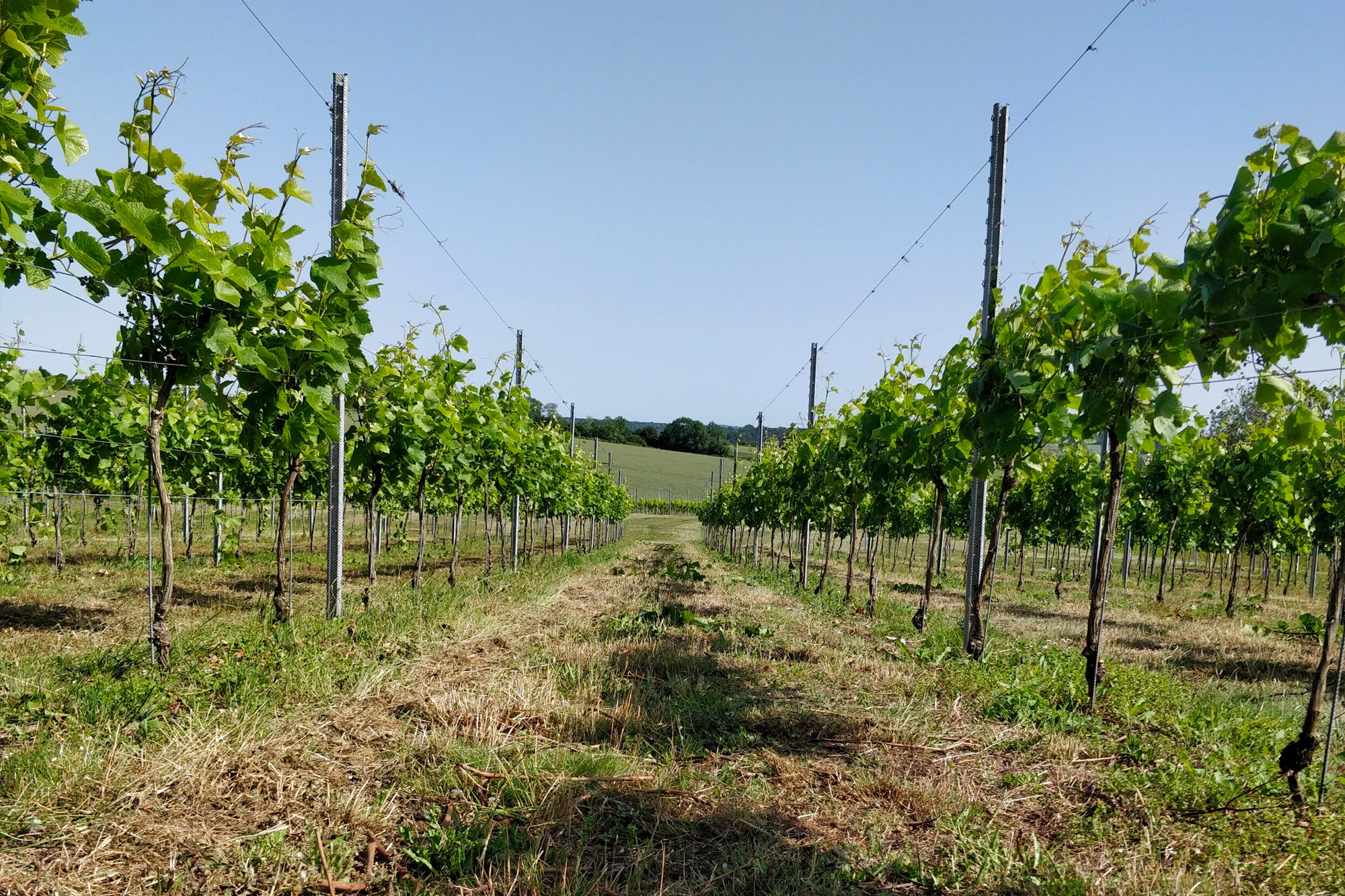When one thinks of an English Wine, a few big names come to mind – Nyetimber, Exton Park, Gusbourne, Chapel Down to name but a few. It is worth noting that the wines coming out of these vineyards (amongst others) are rather good and are getting their name on the world stage. There are, however, many smaller vineyards dotted around the UK which need some limelight. What is it about English wine that draws us in? Well, I feel a small winery called Bsixtwelve, based down in Hampshire, could provide part of that answer.
When I first discovered Bsixtwelve I was intrigued to say the least: Pinot Blanc being grown in the south of England (whatever next!). I started my investigation by asking the owner/winemaker Balbina Leeming a few questions to try to get an understanding of what makes their vineyard so unique.
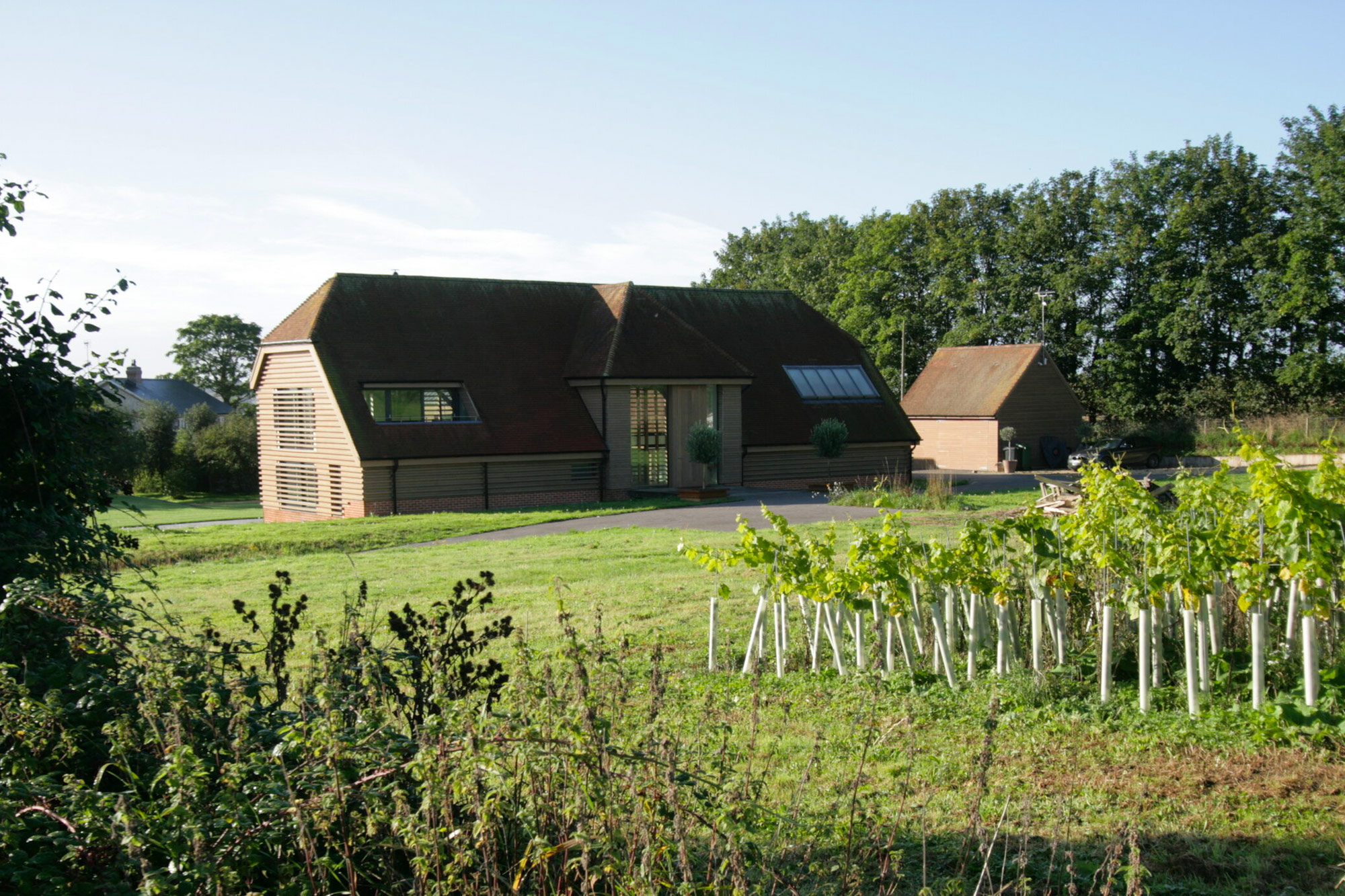
Photos with thanks to Bsixtwelve
What got you into winemaking?
Balbina mentions that she used to work in Finance/Wealth management in London and decided to leave the ‘rat-race’ behind with her husband and “escape to the country”. Wines have always been a big part of her life. There was always wine on the family dinner table as she grew up, but her romance started in La Rioja (she’s half Spanish & half Venezuelan). She also mentions that she studied at Plumpton College.
Why Pinot Blanc?
Pinot Blanc isn’t a grape that you would normally associate with the climate of Southern England, but she is adamant that the soils within her vineyards were the deciding factor (its chalk to be exact). It was around 2011, when the family (surrounded by a few big names in the UK wine industry: Exton Park, Hambledon & Hattingley Valley) found their inspiration and decided a vineyard would be a fun adventure. The vineyard itself was established in 2014. She hints that the freshness, elegance, and the fact that it’s an “everyday drinking” sort of wine were the reasons behind choosing this variety above other possibilities.
What are your thoughts on organic/biodynamic & natural wine?
An interesting question to put to a winemaker I feel. The family believes in the organic movement wherever possible. Like myself, Balbina believes that wine brings passion, and therefore your passion must be 100%, so why not have an organic vineyard if you can? I can understand where she is coming from. The organic wine movement has been gaining momentum over recent years and it’s fantastic to see UK vineyards following suit.
Describe your perfect bottle of wine?
“My perfect bottle of wine is the one that transports you to the vineyard, that talks to you about the smells and the colours and the textures of where the grapes grew. The one that gives you joy and makes you feel fun, and the one that you share with people whether you know them or not, and makes you feel happiness.”
Bsixtwelve seems to have been created to fill a gap in the market. Many wine producers in the UK are following an almost standardised style: sparkling, fresh, dry, and adhering to a set of rules in many ways. It is so lovely to see a small vineyard doing their own thing. With only two acres planted, it is certainly one of the smaller vineyards in the UK but actually that’s the charm of the place. Set amongst the rolling hills of the South Downs, you can understand why one would consider putting a vineyard here.
One of the great things I love about English wines are the lower ABV that you can get from these grapes. Bsixtwelve Pinot Blanc tops out at 11.5% ABV. This fits it nicely into a category that you’d be hard pressed to find elsewhere around the world. Consumers are looking for lower ABV wines these days, especially within the restaurant sector. It enables people to have a glass without having to worry about getting home.
I was very fortunate to be able to try the 2018 Pinot Blanc from them a few days ago. I was seriously impressed. It was a dry, minimalist style of Pinot Blanc. It is fresh, fragrant with lovely aromas of nectarines, white peaches, and this grapefruit zest character. It is clean on the palate with a persistence and lingering quality, combined with a floral aroma that is perfect for a warm evening. Some often compare this grape to a Chardonnay, however for me it’s the subtlety, and that hint of sweetness that makes it a more approachable wine than Chardonnay, which I find can often be slightly more austere in style.
The 2018 vintage in the UK was hailed as one of the best in recent years by many. It gave plenty of plump ripe fruit, which ended with wines of ripeness and great quality.
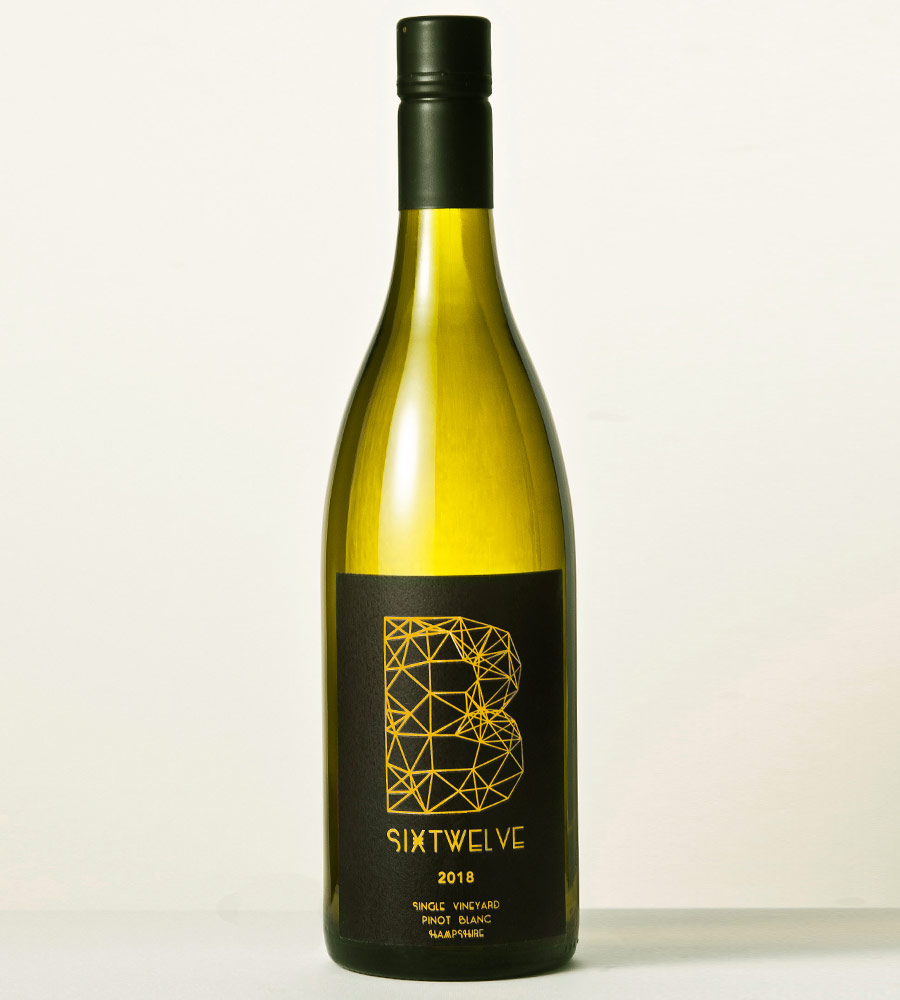
It is so great to see a vineyard take the philosophy of organic viticulture so seriously. The idea is that the vineyard is an eco-system in its own right and that allows the grapes to speak for themselves without having to interfere too much. These guys are making some really fun wine, wines of place, purpose, and quality. I feel they are going places, and I cannot wait to see what they bring to the table in the future.
Wine Pairing
People often ask me what I enjoy drinking these styles of wine with. Within my restaurant – Henrock by Simon Rogan – we focus on using produce in its prime and allowing ingredients to speak for themselves during the course of the seasons, which ultimately dictate what we serve to our guests. We also have plenty of influences from around the world that we include within our style of offering at Henrock. Here are a couple of dishes from our menu at Henrock (before lockdown) that this wine would pair beautifully with:
One of our more popular starters was the Cured Mackerel with a fishbone vinegar, apple, and kohlrabi – the lightness of the dish would pair beautifully with the subtle sweetness coming through from the wine. The fish has been slightly smoked with cedar wood which imparts a smoky flavour to the fish. The kohlrabi adds a hint of sweetness to the dish. I especially like the idea of fish bone vinegar pairing with the acidity of that grapefruit zest character that the wine suggests. This would be a fun pairing.
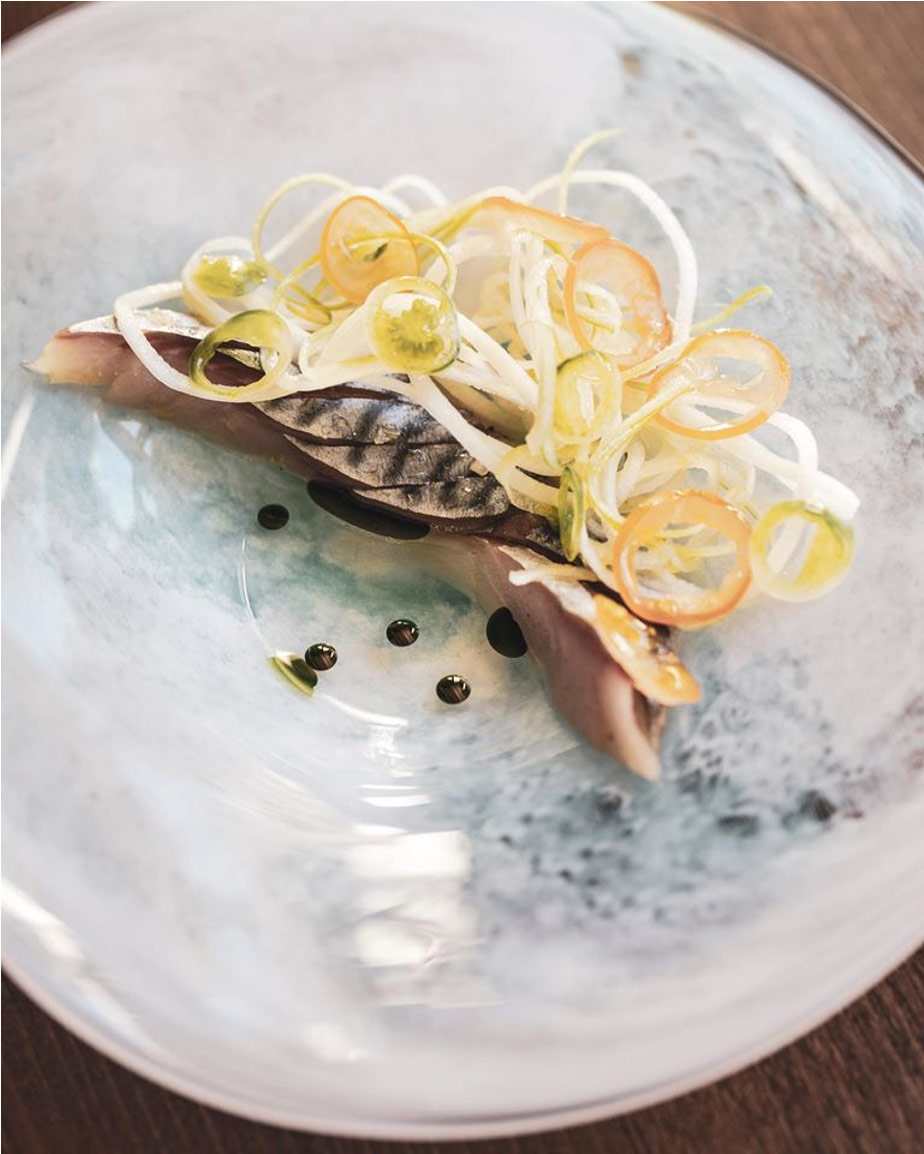
Another of our most popular dishes was the Crab Meat, with a crab dressing, Little Gems, and chives. The inspiration for this dish came from our Head Chef, Brian Limoges, who originates from New England. He would tell us stories of how they would catch the crab and use every single part of it to avoid wastage. It’s a lovely way to start a meal, and with this Pinot Blanc it would be even better. The acidity in the wine would cut through the richness of the dressing beautifully, with that zestiness pairing really well with the herbs and fresh lemon juice poured on top.
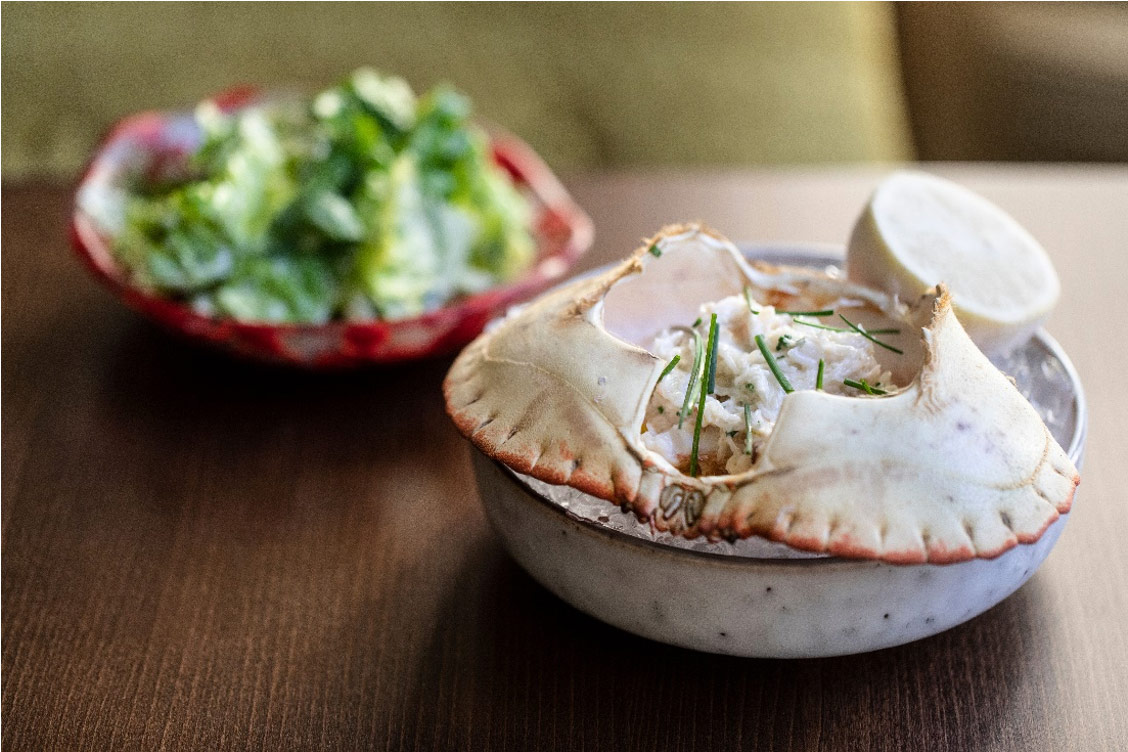
Food photos with thanks to Henrock


